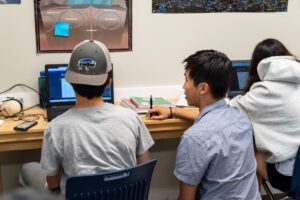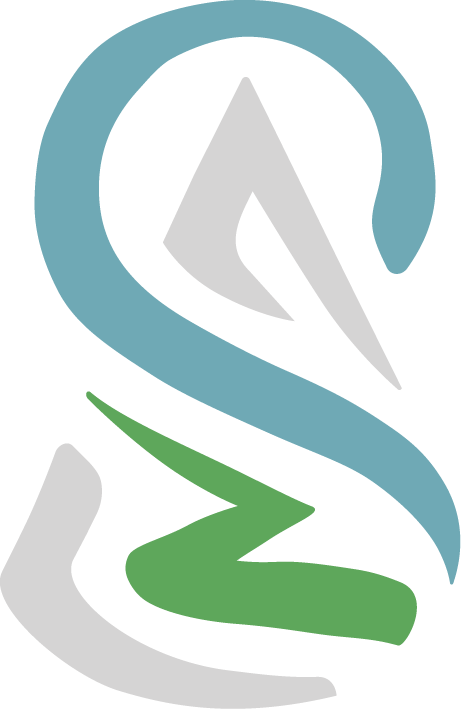Academics and Treatment for Adolescent Anxiety: An Integral Part of the Therapeutic Process
Since 1996 Summit Achievement has incorporated school as an integral part of our program model. This was an intentional choice made by our founders, who had witnessed students leaving therapeutic programs and returning to school ill-equipped to apply their new tools in the classroom. Over the years our program has evolved to meet the needs of the changing population of young people. While we used to be more generalist in our approach, over the past decade we have focused our efforts in order to work in a more specialized way with clients struggling with anxiety.
While anxiety manifests in different forms–social anxiety, performance anxiety, obsessions and compulsions, perfectionism etc.–in the life of an adolescent there is one constant factor in their anxiety: school. All adolescents are required to attend school in some fashion, making it the environment in which their anxious tendencies play out. In most cases, school is often at the root of many of the anxieties that adolescents experience. This can be due to bullying behavior, social pressures, executive functioning challenges, learning differences, real or de facto pressure to perform etc. Thus, it is our belief that to treat anxiety in adolescents it is imperative that the treatment setting include school.

How do we include school? Summit Achievement is different from other therapeutic programs because we are licensed by the state of Maine as an independent boarding school. We are accredited by the New England Association of Schools and Colleges (NEASC). Our campus has an academic building with four classrooms and we employ three full-time teachers and an Academic Director. In our Achievement program students spend Monday-Wednesday of each week attending school during the day and doing an hour of study hall in the evening.
The curriculum is individualized for each student based on their learning profile, their academic history and at what point in the semester or trimester they enroll. All of our curriculum is self-paced and mastery based, allowing students to work at their own pace and ensuring they have a working grasp of concepts before moving onto the next topic. Our Academic Director works with the student, their family, and their past (or future!) schools to determine the most appropriate curriculum.
Our curriculum content is delivered in a blended model. Each student has a laptop computer for classroom use. Lessons include videos, readings, writing assignments, quizzes and tests–all overseen by our classroom teachers in-person. This multimodal curriculum delivery allows us to adapt to the specific learning profile of each student. Our teachers work to create weekly individualized goals for each student to help them make academic progress. This could be as simple as trying to remain in the classroom for half an hour without needing to take a break for some, or trying to complete a particular AP or Honors course for others.
In addition to individualized course work, our Achievement students take an English course that incorporates written therapeutic assignments created by their therapist. They also complete writing assignments reflecting weekly expeditions and experiences in the outdoors, helping to realize the transfer of therapeutic tools into the classroom.
In the Traverse program, our students are in school five days per week and are often focused on semester or trimester completion in order to transition back to a traditional school. Students are awarded transcripts for the completion of semester of quarter length courses. All students in Achievement and Traverse also obtain a physical education semester credit.
How is school part of treatment? Many of our students strengths, weaknesses, challenges, triggers and entrenched patterns related to their anxiety play out in a classroom setting. Summit is different from other therapeutic programs in that we are actively engaged in helping students identify these anxieties as they relate to school. Because of our unique model they can both better understand their anxiety and also begin to craft new coping skills and strategies. Our teachers are active members of our treatment team and our therapists offices are located in the academic building.
We also have a Medical Director and Registered Nurse located in the Academic Building who review student’s medication every other week in order to assess effectiveness. This could be adding, increasing or reducing medication as determined by our staff, the student, the family, and in collaboration with home providers if necessary.
How does school connect to adventure activities? The outdoor adventure component of our program (discussed here in an earlier blog), provides a novel set of experiences that take students out of the trials, triggers and routine of the classroom and pushes them to explore their aptitude, intelligence and learning style in new ways. Examples could be learning how to tie knots to set up a sleeping tarp, the executive functioning challenge of packing a backpack with all our personal belongings every morning, or the challenge of orienting a map and navigating their team to the next campsite.
Between the adventure activities and the classroom setting, a student is going to learn about their own learning style and what approaches do and do not work for them. The profound insights and lessons learned in this novel setting can then be brought back into the classroom setting every Monday morning.
What do our outcomes show? Without a doubt, our students are better prepared to return to school when they leave our programs. Summit Achievement students with moderate to severe anxiety at intake report over a 70% reduction in symptoms by discharge. In addition, students and families report that they are doing far better six months and one year after treatment. Over 80% of our clients leave us and go to a lower level of care. This means attending a traditional boarding school, public school, or private day school. Summit Achievement and Traverse include academics as part of treatment because it helps prepare students to return to school. (Link to outcomes here)


